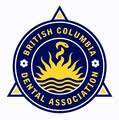According to the 2010 Canadian Health Measures Survey, 62% of Canadians have a dental plan, but many don't realize that group plans aren't designed to meet individual health needs. "Dental plans are a valuable component of extended health benefits and are designed to offset the cost of dental treatment," says President of the BCDA. "Understanding how dental insurance plans work can help patients make informed choices in partnership with their dentist or dental specialist.
Dentist's Responsibility
Just like your physician, your dentist is highly trained. Treatment recommendations are based on your dental health needs, not dictated by your dental coverage. A dental plan is a contract between a third party (such as your employer), and the insurance company. The procedures and percentages covered are determined by the contract, not your dentist.
Your dentist can help you understand your coverage and assist you in getting pre-authorizations for treatment. This will provide you with a good estimate, before treatment begins, of what will be covered by your plan, and what you will have to pay.
Coverage Varies
Your dental coverage is part of your benefits plan, not based on your (or your family's) dental care needs. Every dental plan is different. Coverage varies based on what services are covered in the contract; percentage of fees covered for each service; and yearly maximums. It is the plan purchaser, such as your union or employer, who determines what is covered when they purchase your plan -- not your dentist.
Patient's Responsibility
Dental office staff are not experts on your plan. It is your responsibility to know your plan coverage, including any changes. Ask your benefits manager or insurance provider for a plan booklet or information on your specific coverage.
The Co-Payment
Regardless of the actual costs, most dental plans cover between 50% to 80% of the cost of dental care. Any portion of the price not covered by your plan must be paid by you, and is referred to as the co-payment. The claim form submitted to your insurance company is a contract. Your dentist has an ethical and legal obligation to collect the co-payment from you.
As a service to you, at Acreview Dental Clinic, we bill the insurance company directly for the covered portion of treatment. Dentists are not required to do this. The full cost of the procedure, including the co-payment or the cost of any services not covered by the plan must be collected from the patient at the time the treatment is provided.
How are dental costs determined?
The BCDA produces an annual suggested fee guide for dentists and dental specialists in BC. the majority of insurance plans base coverage percentages on this guide.
Dentists in Canada do not follow a fee schedule and set their prices to cover: lab costs and quality of materials required for your procedure paid for directly by the dentist; salaries; rent; mandatory continuing education; equipment; and all related costs in running their dental practice.
Source: British Columbia Dental Association
 |
| For more information visit the British Columbia Dental Association web site. |


